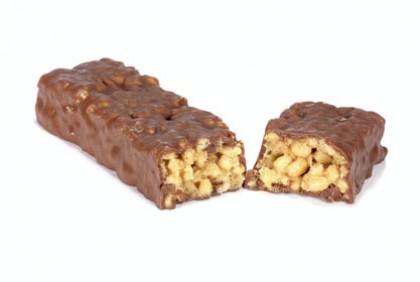Power Eating


Collagen In Protein Bars
QUESTION: I’ve seen collagen in various protein bars on the market, and Scott Welch says this is a shit protein source in terms of quality. What does he mean by this?
ANSWER: Well, Scott is right on that one! This low-quality protein is often a top choice of supplement companies because it is cheap, keeps bars from going hard, and has a good taste. Unfortunately, despite its manufacturing qualities, it lacks nutritional value. If you weren’t aware, hydrolyzed protein isn’t isolated from traditional and high-quality protein sources such as whey or caseinate; it’s mainly obtained from the bones or cartilage of animals or fish. Many manufacturers try to disguise this ingredient under one of its many names: hydrolyzed collagenic protein isolate, hydrolyzed beef protein isolate, or even just hydrolyzed protein. Hydrolyzed protein is abundant in the three major amino acids—glycine, proline, and hydroxyproline—which isn’t an optimal amino acid profile for humans, compared to the high biological value and rich BCAA content of whey protein. Now if that wasn’t enough to deter you from eating another protein bar, let me be blunt: In addition to the low-quality protein, you will also find an abundant amount of other not-so-good-for-you ingredients! Most bars contain high amounts of fat and sugar. Now, if you’re not so concerned about your diet and need a quick, healthy meal alternative, then reach for a protein bar! But if you’re serious about your training, especially if you’re dieting for a contest, a protein bar should not be part of your plan. Trust me when I tell you that the pros don’t use protein bars as part of their pre-contest diet plans; they stick to only whole foods that are closest to their natural sources.

